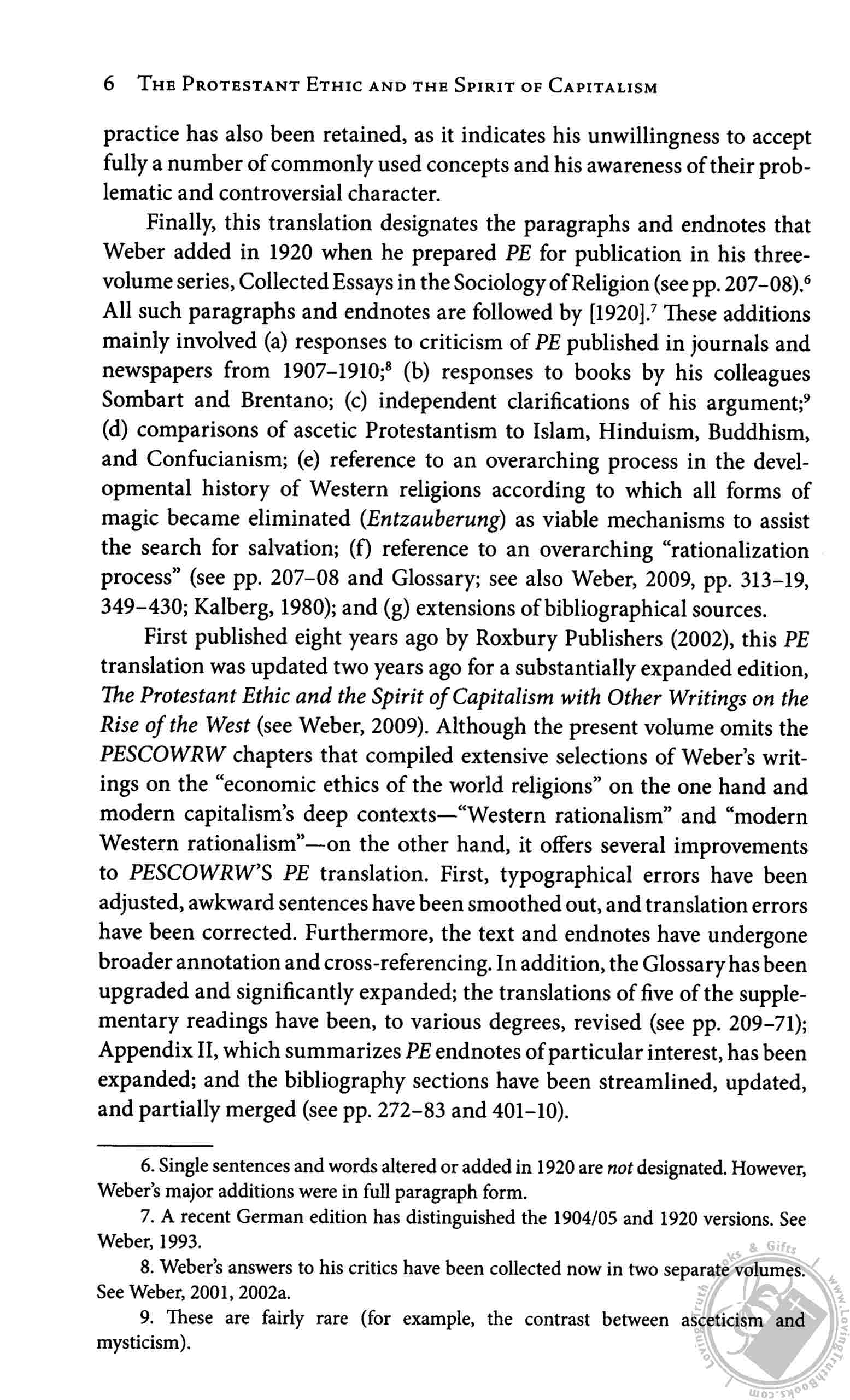

This line of thinking is similar to religious thought, in that it transcends personal enjoyment to encourage individuals to pursue a higher calling. It is actually irrational, because it regards the accumulation of wealth-which, after all, is simply a means to purchase goods-as an end in itself.

Weber also explains that Franklin’s ethical framework is not just hedonistic. It is this set of ethics, in which making money is thought of as a duty, that defines the “spirit of capitalism.” However, Weber explains that Franklin was actually proposing a new ethical framework for structuring one’s life. Other thinkers, such as Ferdinand Kurnberger, denounced this attitude as a new and corrupt kind of American religion.

Franklin believes that increasing wealth is an end in itself, and a worthy goal to aspire to for its own sake. He claims that the main point of the sermon is to convey the idea of an individual’s duty to work for more money. The author claims that money is of a “generating nature,” meaning that the more money one has, the more one can make off of it.Īfter quoting this passage, Weber reveals that it was written by Benjamin Franklin, one of America’s most important early political figures. The document consists of advice being given to a worker, who is counseled to remember that “time is money,” and “credit is money.” The author emphasizes that it is important to make full use of one’s time in order to turn the maximum profit, and that it is also essential to keep good credit in order to continue amassing money in a reliable way. Weber thus begins with an “illustration,” in the form of a document that, according to Weber, encapsulates the spirit of capitalism almost perfectly. Rather, we must begin from the observation of specific characteristics, and then gradually move towards a broader explanation that links the individual to his context in order to arrive at an understanding of both. However, Weber also states that we cannot simply explain the historical individual according to his context. Weber begins this section by proposing to explain what he means by the “spirit of capitalism.” Weber says this term can only be understood in the context of the “historical individual.” By this, he means that a given person or concept cannot be understood in isolation, but must be considered instead in terms of their cultural context this means that a given concept involves many different layers of meaning and implication.


 0 kommentar(er)
0 kommentar(er)
